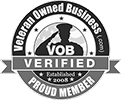The 401(k) plan is an excellent way for working Americans to save for retirement. For many, hitting the maximum contribution limit is a goal that many work toward to reap the benefits of saving tax-deferred. But what happens when you’ve maxed out your 401(k) contributions and want to continue saving for an independent and comfortable retirement?
Maxing out your 401(k) is a significant achievement toward securing an independent financial future. However, several other investment strategies offer tax advantages and asset accumulation potential so you can continue investing toward your retirement savings goal. Here are some strategies to consider investing in next.
Individual Retirement Account (IRA)
One of the most common options when you’ve maxed out your 401(k) is contributing to an Individual Retirement Account (IRA). An IRA offers similar tax benefits to 401(k), where your contributions grow tax-deferred.
Roth IRA
The Roth IRA differs significantly from traditional IRAs and employer-sponsored 401(k)s, which are funded with after-tax dollars. The benefit of a Roth IRA comes at retirement, as you are able to withdraw funds, both contributions and accumulation, without incurring additional taxes, which is beneficial if you anticipate being in a higher tax bracket upon retirement.
To qualify for a Roth IRA, your income must fall within certain limits, which are adjusted annually. Talk to a financial professional to determine if your income falls within the IRS limits if you are considering a Roth IRA.
Taxable Brokerage Account
A taxable account is another saving strategy to consider when you’ve maxed out your 401(k). Although these accounts don’t offer the same tax benefits as 401(k)s and IRAs, they provide increased flexibility in withdrawal times and without penalties. A balanced mix of stocks, bonds, and mutual funds in brokerage accounts can offer substantial accumulation over time.
Health Savings Account (HSA)
An HSA is another great supplemental retirement saving strategy. These accounts are used with high-deductible health plans, giving individuals the advantage of triple tax benefits: tax-deductible contributions, tax-free growth, and tax-free withdrawals for qualified medical expenses. After age 65, non-medical withdrawals are taxed at the regular income tax rate, turning the HSA into a supplemental retirement income account.
Alternative Investments
Suppose you have already maxed out your 401(k) and these above savings strategies. In that case, it may be time to consider alternative investment strategies, such as buying a rental property or investing in real estate investment trusts (REITs) or private investments.
Alternative investments can provide a steady source of income and potential appreciation. However, it’s vital to conduct due diligence by consulting financial and tax professionals to ensure these strategies are appropriate for your situation as they come with risks.
Navigate Financial Decisions With An Expert
Whether you invest in an IRA, HSA, a taxable brokerage account, real estate, or private investments, the key is maintaining a diversified portfolio to spread risk and increase growth and asset accumulation opportunities. Consider enlisting the help of a financial professional to help navigate these decisions in line with your specific circumstances and objectives.


